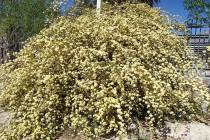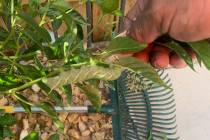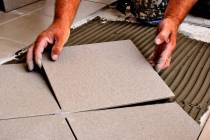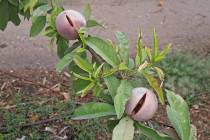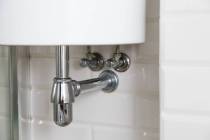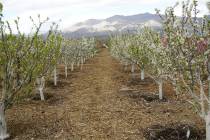Challenges of 2009 offer valuable lessons
It has been a year of learning. With economic challenges at every turn throughout 2009, many have been forced to do more with less. People have downsized, minimized, economized and localized. In a sense it could be considered a sort of natural correction. As we move forward into the new year we should not forget these important lessons.
For example, average home size has been growing for decades. Now there is a greater appreciation of the "smaller is better" concept. Homes that provide for our needs without being lavish or oversized make a lot of sense, not just for the occupants but for all of society. It's much easier and less expensive to make a small, efficient home completely energy independent. I can't count the number of people that have complained to me about high energy costs but who fail to make the connection to the size and efficiency of their home.
We're moving toward the day when the cost of fossil energy will include the price of burning and releasing carbon. That alone will likely raise the price of electricity, but the overall financial effect need not be negative. In fact, accurate and honest pricing for carbon emissions is necessary if we want to continue to prosper. This will drive down the relative cost for renewables, ultimately saving not only fuel costs, but perhaps even our entire civilization.
This is why I often write about the importance of energy efficiency. It is the best strategy to combat rising energy costs.
This season also provides some special opportunities that should not be overlooked.
If you're among the many shoppers who will be purchasing electronic devices for the holidays, make sure you consider energy use when making your decisions. The yearly operating costs of some electronic devices are substantial and, when multiplied by their life expectancy, can make a real impact on your energy bill. Remember that the cheapest purchase price is not always the best overall value.
Let's say you have an older 27-inch television. You've used it for many years and you would like to responsibly recycle it and get a better set. Old CRT (cathode ray tube) sets, even those with an Energy Star-rating, use a fair amount of energy. LCD (liquid crystal display) flat-screen televisions use compact fluorescent lamps to provide backlight and they are more efficient. Some of the newest LCD sets use LEDs (light emitting diodes) for backlight, saving even more energy.
For example, replacing the old 27-inch set with a 46-inch LCD-LED television can not only provide a much larger and higher quality picture, but the energy consumption can be cut in half. Less can truly be more.
Make the wrong decision however and the same size flat screen with plasma technology could more the double the energy costs plus add significant heat loads to your home. The difference in energy costs over the lifetime of the product could run to thousands of dollars. Specific results will vary, but this example illustrates how our net energy use can continue to decrease as technology improves efficiency.
Individually, no single item will have a huge impact, but the sum of your decisions over time to vote with your dollars for energy efficiency will be as good as putting money in the bank.
One more holiday note: If you are one of the thousands who are using a real Christmas tree this season, please recycle it properly. Starting Dec. 26 and running through approximately Jan. 15, you can take your cut Christmas trees to one of more than 20 convenient drop sites throughout the valley.
Recycling your tree keeps it out of the landfill and, when chipped into mulch, it becomes valuable organic material that conserves soil moisture and keeps plants healthy. Call 822-7700 or visit www.springspreserve.org for more information.
Steve Rypka is a green living consultant and president of GreenDream Enterprises, a company committed to helping people live lighter on the planet. Steve can be reached via e-mail at steve@greendream.biz. More information relating to this column is posted at www.greendream.biz.









